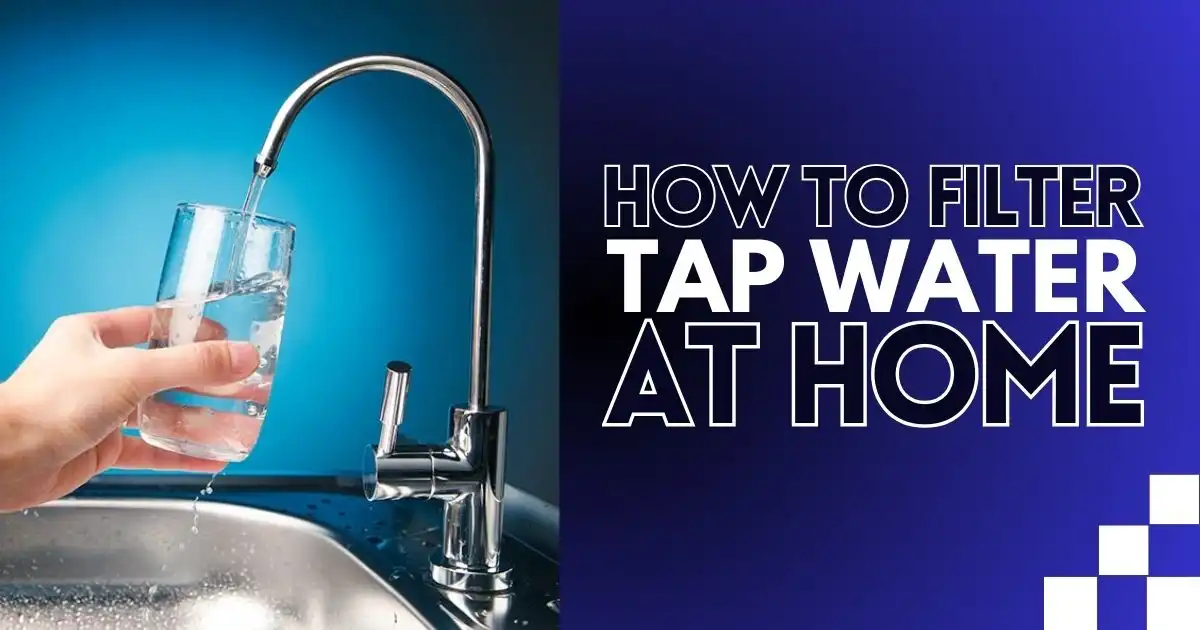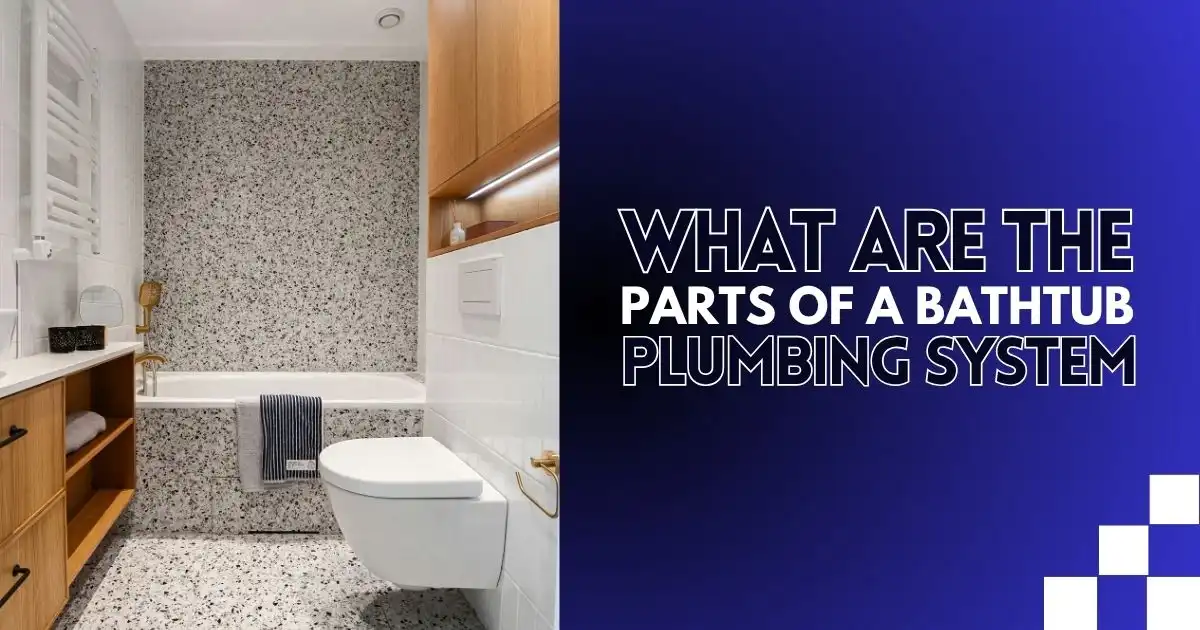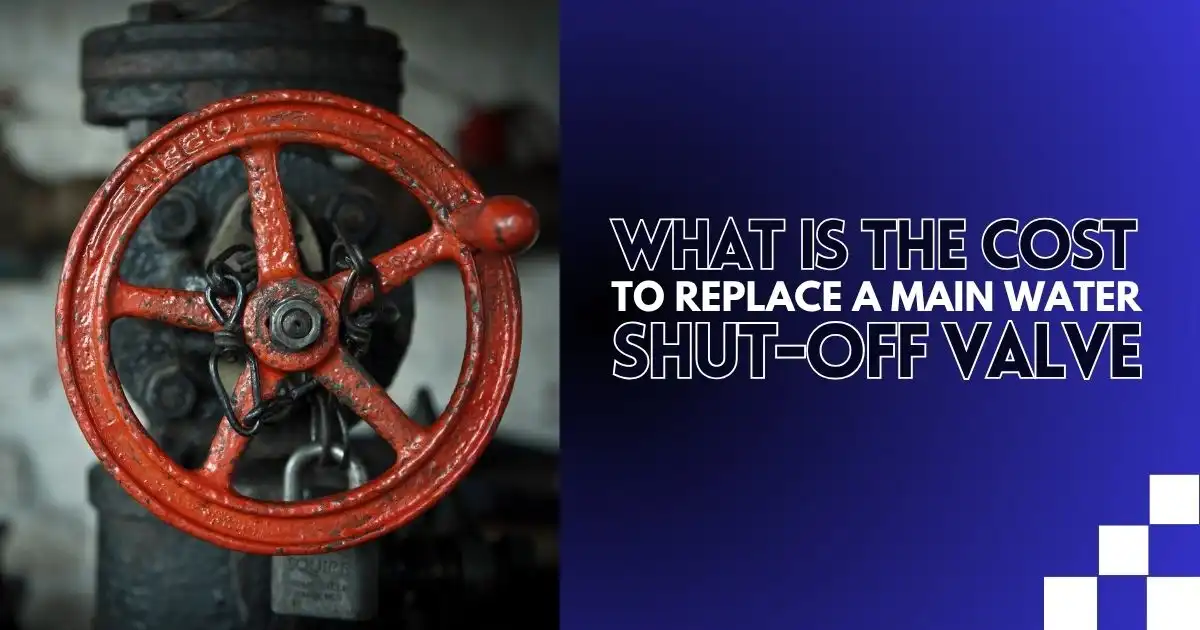The right plumbing pipes are important for any home or business in Las Vegas, where the desert’s tough conditions bring special challenges. In the summer, temperatures can go over 100°F, and in winter, they can drop to freezing.
Just like the veins in your body, your plumbing needs to be strong and dependable, able to handle both the intense heat and sudden cold, keeping everything running smoothly for years to come.
Importance of Choosing the Right Plumbing Pipes
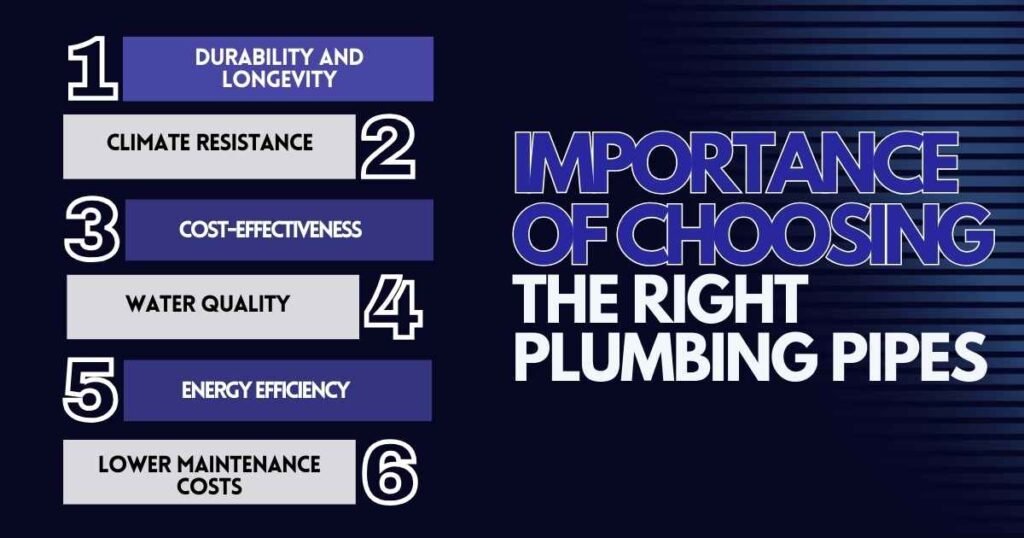
Choosing the right plumbing pipes for your home or business is important for several reasons:
- Durability and Longevity:The right pipes will last for many years without needing frequent repairs or replacements, saving you money over time.
- Climate Resistance: In Las Vegas, where temperatures can be over 100°F in summer and drop to freezing in winter, you need pipes that can handle these extreme conditions without cracking or leaking.
- Cost-Effectiveness: Materials like PEX or PVC are affordable to install and maintain, while copper may cost more upfront but lasts longer and is worth the investment.
- Water Quality: Some pipes, like galvanized steel, can rust and affect water quality. Choosing corrosion-resistant materials like copper or CPVC ensures clean, safe water.
- Energy Efficiency: Using the right pipes, especially for hot water, helps maintain proper temperatures, reducing energy use and lowering your bills.
- Lower Maintenance Costs: Pipes that resist rust, leaks, and damage require fewer repairs, helping you save on maintenance over time.
6 Types of Plumbing Pipes in Las Vegas
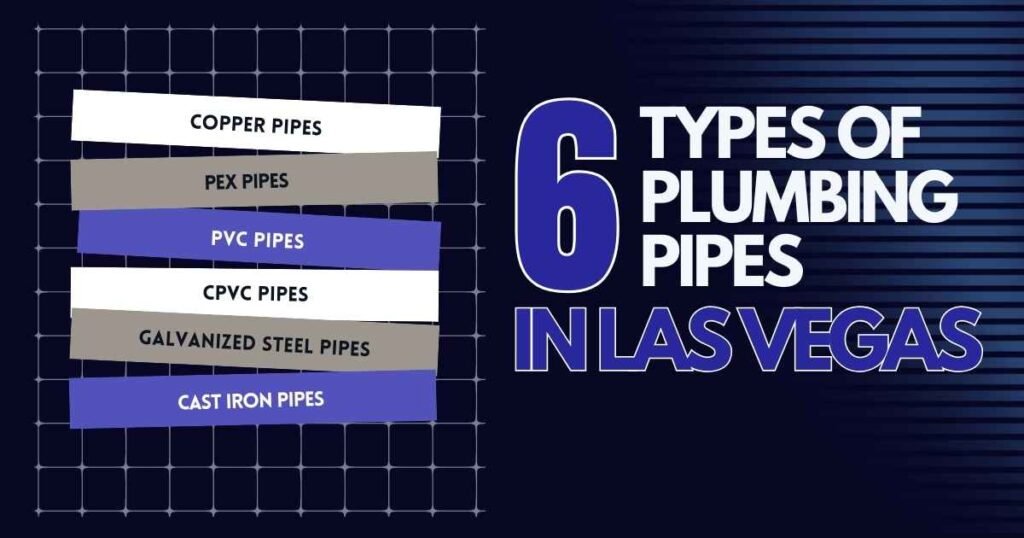
In Las Vegas, choosing the right plumbing pipes is key to handling extreme temperatures and water needs.
1. Copper Pipes
Copper has been a go-to plumbing material for decades due to its durability, reliability, and resistance to corrosion. It is highly valued for its ability to handle both hot and cold water efficiently, without losing strength or becoming brittle over time. Its long lifespan (often 50 years or more) makes it ideal for both residential and commercial use.
- Health Benefits: Copper is naturally resistant to bacteria, making it a good choice for drinking water systems.
- Eco-Friendly: Copper is 100% recyclable, making it an environmentally friendly option.
- Installation Requirements: Copper pipes require professional installation due to the need for soldering, which ensures leak-free connections.
Best for: Long-term homeowners or businesses looking for high-quality, durable plumbing systems that are built to last for decades, even in high-temperature environments.
2. PEX (Cross-linked Polyethylene) Pipes
PEX pipes have gained popularity in recent years due to their flexibility, affordability, and easy installation. These pipes are able to expand and contract with temperature changes, making them highly resistant to bursting in cold conditions. This flexibility also means fewer connections, which reduces the risk of leaks.
- Quick Installation: PEX pipes can be installed quickly, which helps reduce labor costs.
- Color-Coded for Convenience: PEX pipes come in red, blue, and white colors to easily differentiate between hot, cold, and neutral water lines.
- Low Maintenance: Once installed, PEX pipes require very little maintenance over their lifespan.
Best for: Residential projects where cost and ease of installation are important, especially in homes that experience occasional freezing temperatures. Ideal for both DIY installations and professional use indoors.
3. PVC (Polyvinyl Chloride) Pipes
PVC is one of the most widely used plumber pipe materials for waste, vent, and drainage systems due to its affordability and ease of installation. These pipes are lightweight, corrosion-resistant, and can last for decades when used properly. However, they are not suitable for hot water applications as they can warp and degrade under high temperatures.
- Chemical Resistance: PVC is resistant to many chemicals, making it suitable for industrial applications and wastewater systems.
- Noise Reduction: PVC pipes reduce water flow noise, making them a popular choice for residential drainage systems.
- Connections: PVC pipes require solvent welding for leak-proof connections, a process that can be done by professionals or experienced DIYers.
Best for: Waste, vent, and drainage systems in residential and commercial properties. It’s a cost-effective option for non-pressurized applications where durability and corrosion resistance are key.
4. CPVC (Chlorinated Polyvinyl Chloride) Pipes
CPVC pipes are treated to handle higher temperatures than standard PVC, making them suitable for hot water lines. They are corrosion-resistant, lightweight, and offer a cost-effective alternative to copper pipes. CPVC pipes are widely used in both residential and commercial properties.
- Easy Installation: CPVC pipes are easier to install than copper, as they don’t require soldering. They are typically joined with solvent cement.
- Fire Resistance: CPVC is more resistant to fire than standard PVC, making it a safer option in certain applications.
- Temperature Tolerance: CPVC can handle temperatures up to 200°F, making it ideal for hot water lines and solar water heating systems.
Best for: Hot water supply lines in homes and businesses where a budget-friendly, durable alternative to copper is needed. It’s also suitable for retrofitting older plumbing systems.
5. Galvanized Steel Pipes
Galvanized steel pipes were once a standard in plumbing due to their strength and resistance to rust. However, over time, the zinc coating that protects them from rust wears off, leading to corrosion and water contamination issues. This makes them less suitable for modern installations, but they can still be found in older homes and buildings in Las Vegas.
- Water Contamination: Corroding galvanized pipes can release rust and particles into the water supply, which may affect water quality.
- Lifespan: Galvanized pipes have a lifespan of about 20-50 years, depending on the environment and water quality.
- Replacement Needs: Due to the risk of corrosion and reduced water pressure, galvanized pipes may need to be replaced with copper or PEX in older homes.
Best for: Older homes that still have existing galvanized piping. It’s not recommended for new installations, and homeowners should consider replacing galvanized pipes with more modern materials to avoid long-term issues.
6. Cast Iron Pipes
Cast iron pipes are known for their incredible durability and are commonly used in sewage and drainage systems. Cast iron can handle large volumes of water and is resistant to external pressures, making it ideal for underground installation. These pipes are heavy and difficult to install but have a very long lifespan.
- Soundproofing: Cast iron pipes are excellent at reducing noise from running water, which makes them popular in multi-story buildings.
- Corrosion Resistance: Modern cast iron pipes are typically coated to resist corrosion, but older pipes may still face rusting issues over time.
- Recyclability: Cast iron is highly recyclable, making it an eco-friendly choice for those looking to reduce their environmental impact.
Best for: Large buildings, commercial properties, or homes where durable, soundproof plumbing systems are required. Cast iron is commonly used in high-pressure drainage and sewage systems, where strength and longevity are key.
How to Choose the Right Plumbing for Your Home

When choosing plumbing materials, consider the following factors:
- Budget: Copper pipes are durable but expensive, while PEX and CPVC offer cost-effective alternatives.
- Durability: Choose materials like copper or cast iron if you want long-lasting plumbing, especially for hot water lines.
- Purpose: PVC is great for drainage, while PEX or CPVC are better suited for water supply lines.
- Climate: For areas with fluctuating temperatures, like Las Vegas, PEX pipes are ideal due to their resistance to freezing.
Upgrade Your Plumbing with Vegas Plumbing Pros!
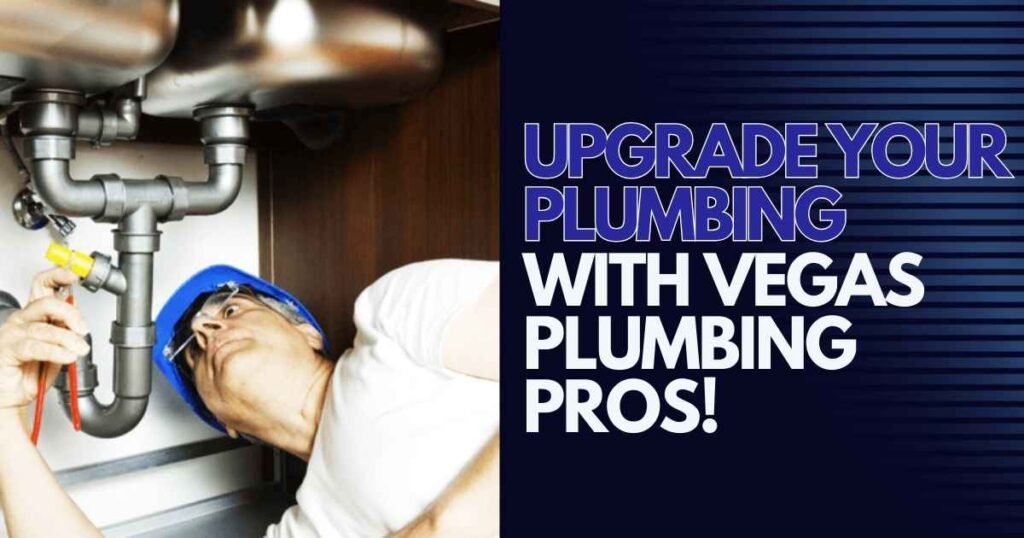
Upgrade your plumbing today to make sure your Las Vegas home or business is ready for the city’s extreme temperatures! If you need pipes that last a long time or affordable options, picking the right ones can save you from costly repairs in the future. Don’t settle for less—choose quality plumbing that can handle Las Vegas’ unique weather and keep your property running smoothly.
Take action now before small plumbing problems turn into expensive repairs. Contact Vegas Plumbing Pros today to get the best plumbing solution for your needs.
Balancing Reliability and Cost
The right plumbing pipes in Las Vegas are important to ensure your home or business can handle the city’s extreme temperatures. A strong plumbing system, like the backbone of a solid building, keeps things running smoothly and helps avoid costly repairs. Different pipes offer unique advantages, but the choice comes down to what matters most to you.
Are you opting for long-lasting reliability, or just going for a quick, budget-friendly fix? Maybe it’s a mix of both? That’s something only you can decide as you plan for your property’s future.
FAQs
What are the most common types of plumbing pipes used in Las Vegas?
In Las Vegas, the most common plumbing pipes include copper, PEX (cross-linked polyethylene), PVC (polyvinyl chloride), and CPVC (chlorinated polyvinyl chloride). Copper is known for its durability, while PEX is popular for its flexibility and affordability. PVC is commonly used for drainage systems, and CPVC is often chosen for hot water lines because it handles higher temperatures.
Which plumbing pipes are best for Las Vegas’ extreme temperatures?
Copper and PEX pipes are often the best choices for Las Vegas due to their ability to handle extreme temperatures. Copper is durable and resistant to heat, while PEX is flexible and expands during freezing conditions, making it less likely to burst. Proper insulation is also essential to protect your plumbing from the city’s harsh summer heat and occasional winter cold.
What type of pipe is commonly used for main water lines?
Main water lines typically use materials like copper, PEX, or PVC. Copper is durable and long-lasting, while PEX is more affordable and flexible. PVC is often used for cold water lines and drainage but may not handle high temperatures as well as other materials.
How many types of pipes are there in the water supply?
There are several types of pipes used in water supply systems. Copper is durable and corrosion-resistant, while PEX is flexible and affordable, ideal for modern homes. PVC is commonly used for cold water supply, and CPVC is similar but can handle hot water. Galvanized steel was popular in the past, but it’s less common now due to corrosion issues. Each type is chosen based on specific needs like water temperature and durability.

